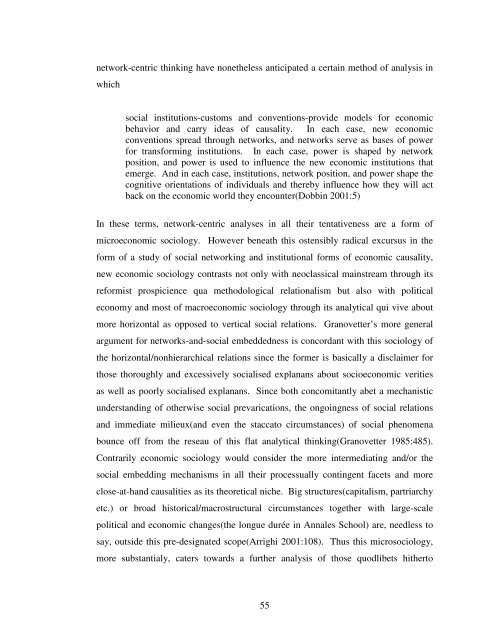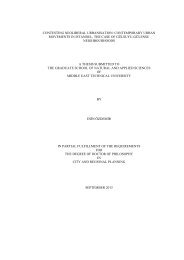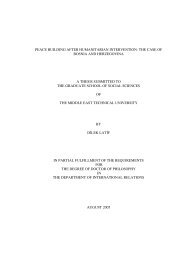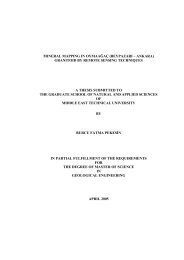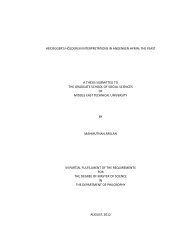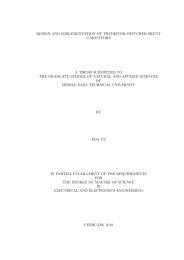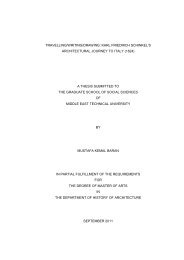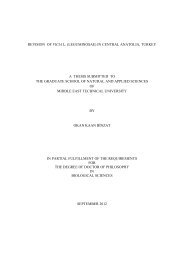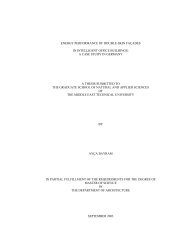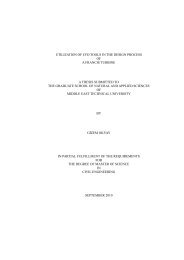View Original - Middle East Technical University
View Original - Middle East Technical University
View Original - Middle East Technical University
Create successful ePaper yourself
Turn your PDF publications into a flip-book with our unique Google optimized e-Paper software.
network-centric thinking have nonetheless anticipated a certain method of analysis in<br />
which<br />
social institutions-customs and conventions-provide models for economic<br />
behavior and carry ideas of causality. In each case, new economic<br />
conventions spread through networks, and networks serve as bases of power<br />
for transforming institutions. In each case, power is shaped by network<br />
position, and power is used to influence the new economic institutions that<br />
emerge. And in each case, institutions, network position, and power shape the<br />
cognitive orientations of individuals and thereby influence how they will act<br />
back on the economic world they encounter(Dobbin 2001:5)<br />
In these terms, network-centric analyses in all their tentativeness are a form of<br />
microeconomic sociology. However beneath this ostensibly radical excursus in the<br />
form of a study of social networking and institutional forms of economic causality,<br />
new economic sociology contrasts not only with neoclassical mainstream through its<br />
reformist prospicience qua methodological relationalism but also with political<br />
economy and most of macroeconomic sociology through its analytical qui vive about<br />
more horizontal as opposed to vertical social relations. Granovetter’s more general<br />
argument for networks-and-social embeddedness is concordant with this sociology of<br />
the horizontal/nonhierarchical relations since the former is basically a disclaimer for<br />
those thoroughly and excessively socialised explanans about socioeconomic verities<br />
as well as poorly socialised explanans. Since both concomitantly abet a mechanistic<br />
understanding of otherwise social prevarications, the ongoingness of social relations<br />
and immediate milieux(and even the staccato circumstances) of social phenomena<br />
bounce off from the reseau of this flat analytical thinking(Granovetter 1985:485).<br />
Contrarily economic sociology would consider the more intermediating and/or the<br />
social embedding mechanisms in all their processually contingent facets and more<br />
close-at-hand causalities as its theoretical niche. Big structures(capitalism, partriarchy<br />
etc.) or broad historical/macrostructural circumstances together with large-scale<br />
political and economic changes(the longue durée in Annales School) are, needless to<br />
say, outside this pre-designated scope(Arrighi 2001:108). Thus this microsociology,<br />
more substantialy, caters towards a further analysis of those quodlibets hitherto<br />
55


